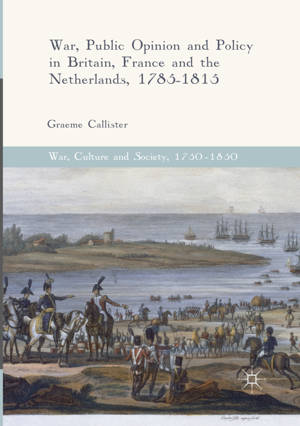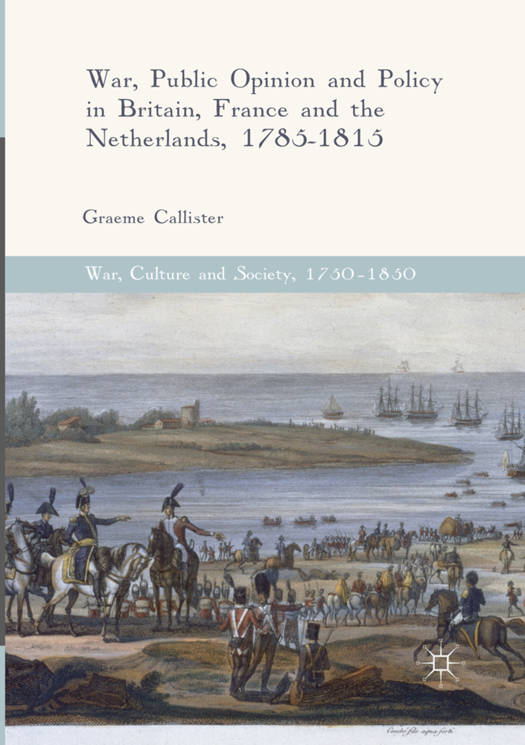
- Afhalen na 1 uur in een winkel met voorraad
- Gratis thuislevering in België vanaf € 30
- Ruim aanbod met 7 miljoen producten
- Afhalen na 1 uur in een winkel met voorraad
- Gratis thuislevering in België vanaf € 30
- Ruim aanbod met 7 miljoen producten
Zoeken
War, Public Opinion and Policy in Britain, France and the Netherlands, 1785-1815
Graeme Callister
€ 105,45
+ 210 punten
Uitvoering
Omschrijving
This book offers a detailed investigation of the influence of public opinion and national identity on the foreign policies of France, Britain and the Netherlands in the late eighteenth and early nineteenth centuries. The quarter-century of upheaval and warfare in Europe between the outbreak of the French Revolution and fall of Napoleon saw important developments in understandings of nation, public, and popular sovereignty, which spilled over into how people viewed their governments--and how governments viewed their people. By investigating the ideas and impulses behind Dutch, French and British foreign policy in a comparative context across a range of royal, revolutionary and republican regimes, this book offers new insights into the importance of public opinion and national identities to international relations at the end of the long eighteenth century.
Specificaties
Betrokkenen
- Auteur(s):
- Uitgeverij:
Inhoud
- Aantal bladzijden:
- 348
- Taal:
- Engels
- Reeks:
Eigenschappen
- Productcode (EAN):
- 9783319841939
- Verschijningsdatum:
- 8/05/2018
- Uitvoering:
- Paperback
- Formaat:
- Trade paperback (VS)
- Afmetingen:
- 148 mm x 210 mm
- Gewicht:
- 435 g

Alleen bij Standaard Boekhandel
+ 210 punten op je klantenkaart van Standaard Boekhandel
Beoordelingen
We publiceren alleen reviews die voldoen aan de voorwaarden voor reviews. Bekijk onze voorwaarden voor reviews.











